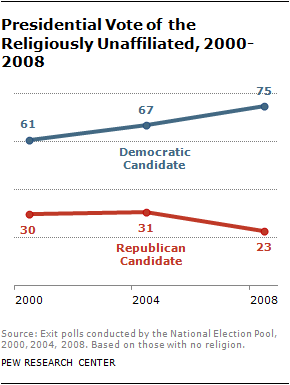William Lane Craig has a piece on the Fox News website in which he claims to cut through all the slogans and refute all of the arguments of atheists to conclusively demonstrate the existence of his god. These must be real humdingers to wrap up the whole debate, so I read them…and now I have a few questions.
1. God provides the best explanation of the origin of the universe. Given the scientific evidence we have about our universe and its origins, and bolstered by arguments presented by philosophers for centuries, it is highly probable that the universe had an absolute beginning. Since the universe, like everything else, could not have merely popped into being without a cause, there must exist a transcendent reality beyond time and space that brought the universe into existence. This entity must therefore be enormously powerful. Only a transcendent, unembodied mind suitably fits that description.
But Mr Craig! Where’s the math? I know you don’t like any kind of evidence and are a being operating on pure logic, but you could at least provide the mathematical foundation for your assertion. You know your holy book just baldly states that a god did it, with no backing rationale, right? It makes for a very unsatisfactory explanation. There’s no meat to it.
And don’t you think it’s a bit of a leap to jump from a necessary first cause (which I don’t necessarily grant you) to the conclusion that it required an “unembodied mind”? Maybe it required an unembodied anus to poop out the universe, no brain needed.
2. God provides the best explanation for the fine-tuning of the universe. Contemporary physics has established that the universe is fine-tuned for the existence of intelligent, interactive life. That is to say, in order for intelligent, interactive life to exist, the fundamental constants and quantities of nature must fall into an incomprehensibly narrow life-permitting range. There are three competing explanations of this remarkable fine-tuning: physical necessity, chance, or design. The first two are highly implausible, given the independence of the fundamental constants and quantities from nature’s laws and the desperate maneuvers needed to save the hypothesis of chance. That leaves design as the best explanation.
But Mr Craig! The universe isn’t finely tuned. The overwhelming bulk of it is inaccessible to us, and even on this one planet we inhabit, 70% is underwater, vast swathes are icy wastes or deserts, and those toasty warm damp tropics, which are otherwise paradisial, are heaven for parasites and diseases. You even admit this yourself when you say our nature requires an environment that falls within an “incomprehensibly narrow life-permitting range”. Do think that range is everywhere?
Also, without other universes to compare, you can’t claim that ours has optimal parameters. Don’t you also claim the existence of a heaven which is perfect? Therefore, we can obviously see that the Earth is a much inferior place.
3. God provides the best explanation of objective moral values and duties. Even atheists recognize that some things, for example, the Holocaust, are objectively evil. But if atheism is true, what basis is there for the objectivity of the moral values we affirm? Evolution? Social conditioning? These factors may at best produce in us the subjective feeling that there are objective moral values and duties, but they do nothing to provide a basis for them. If human evolution had taken a different path, a very different set of moral feelings might have evolved. By contrast, God Himself serves as the paradigm of goodness, and His commandments constitute our moral duties. Thus, theism provides a better explanation of objective moral values and duties.
But Mr Craig! Atheists do have an objective source for morality: ourselves. I can strive to create a society which provides a good moral framework that makes me happy, keeps my family safe and productive, builds communities and nations that work cooperatively, and just generally makes life better for my species over the long run. I don’t need a god to do that. And besides, your god doesn’t provide moral guidance to anyone.
And yes, people can have different objective moral values. For instance, a person could decide that the well-being of a broader spectrum of organisms than just one species is an important value, and dedicate themselves to maintaining life everywhere it exists. I can respect that. It doesn’t take a god to acquire that moral code, just an appreciation of beauty and a greater empathy.
4. God provides the best explanation of the historical facts concerning Jesus’ life, death, and resurrection. Historians have reached something of consensus that the historical Jesus thought that in himself God’s Kingdom had broken into human history, and he carried out a ministry of miracle-working and exorcisms as evidence of that fact. Moreover, most historical scholars agree that after his crucifixion Jesus’ tomb was discovered empty by a group of female disciples, that various individuals and groups saw appearances of Jesus alive after his death, and that the original disciples suddenly and sincerely came to believe in Jesus’ resurrection despite their every predisposition to the contrary. I can think of no better explanation of these facts than the one the original disciples gave: God raised Jesus from the dead.
But Mr Craig! Does your god also provide the best explanation for how Mohammed flew to heaven on a winged horse, or how Odin lost his eye, the divinity embodied in every noodly appendage of the Flying Spaghetti Monster, how Breatharians can live without eating, or how the Amazing Randi did that really amazing card trick?
Does your god blind you to the possibility that there are better explanations? Say, that the entire story of the empty tomb was a legend invented well after the fact, or that if there were a tomb, a Roman surgeon had the body stolen for the purposes of his anatomical studies, or that a bear dragged the corpse away for a little snack? There are many simpler and explanations, and it seems to me to be a bit of a deficiency on your part that you can’t think of them.
5. God can be personally known and experienced. The proof of the pudding is in the tasting. Down through history Christians have found through Jesus a personal acquaintance with God that has transformed their lives.
But Mr Craig! Every god-believer claims that about their god, not just yours. Atheists do not deny that believers experience subjective psychological phenomena that can affect how they see the world. What we deny is that there is an objective, external super-being that is diddling their brains or making the moon orbit the Earth or making people healthy if they beg hard enough. You’re avoiding addressing the nature of the phenomenon that is “experienced”, which is ultimately the whole question, so your little essay completely misses the mark.
I guess I’m still an atheist.



